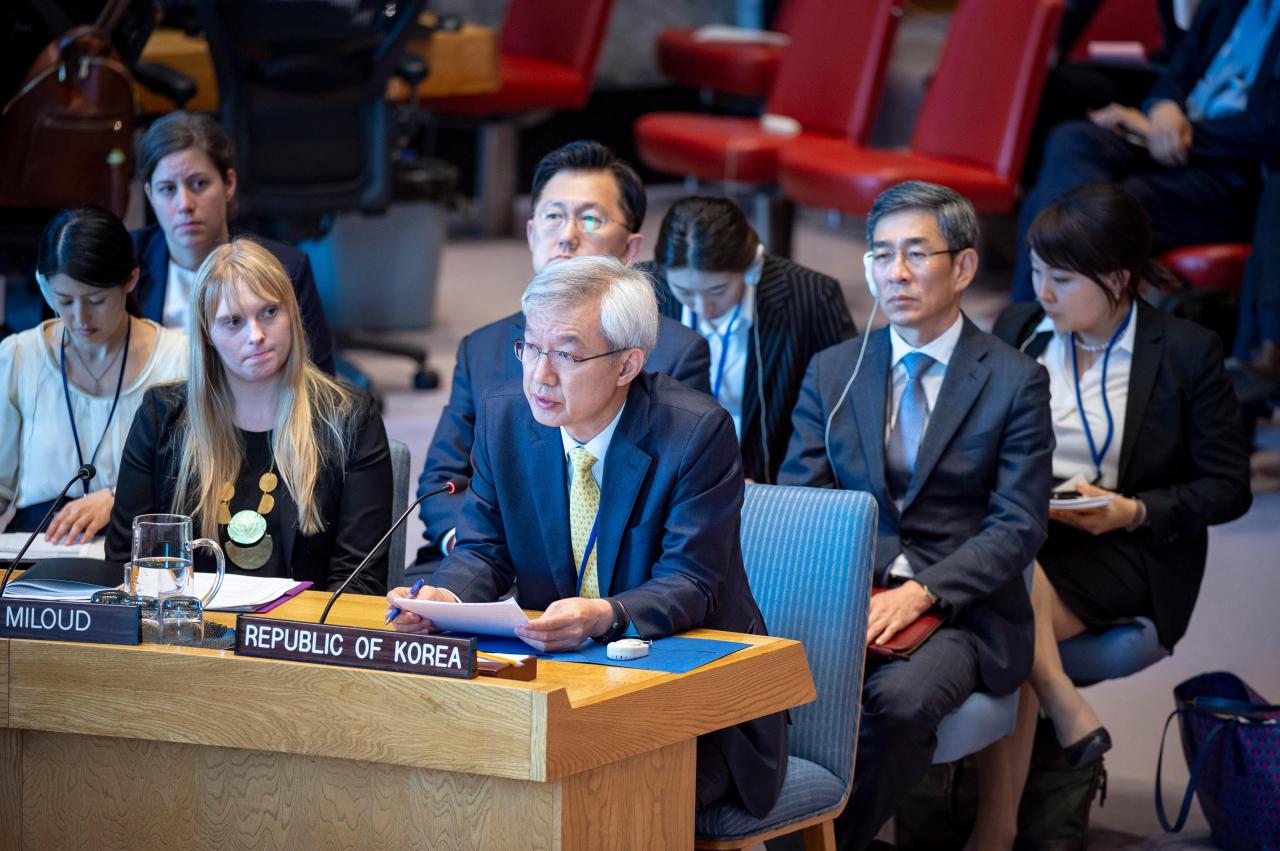Vice FM stresses 'inclusive' interpretation strategies for world heritage
By YonhapPublished : May 14, 2019 - 19:38
South Korea's Vice Foreign Minister Lee Tae-ho called Tuesday for "inclusive" interpretation strategies for world heritage, noting their role in establishing peace in the global community.
Lee made the remarks during the International Conference on UNESCO World Heritage Interpretation that Seoul's foreign ministry and Cultural Heritage Administration hosted jointly with the Korean National Commission for UNESCO.

"The development of inclusive interpretation strategies that focus on achieving the reconciliation of peoples and communities is, no doubt, instrumental to the establishment of peace and security in our global community," Lee said during the annual conference.
The vice minister also highlighted the need to remain open to diverse historical narratives in the present-day interpretation of world heritage.
"We should not avoid our duty to face differing views on history. ... Hiding or neglecting any negative aspect of history is not the right approach to take," he said. "In this sense, Korea firmly believes in the importance of preparing interpretive strategies that would allow for an understanding of the full history of each world heritage site."
Since its inaugural session in November 2016, South Korea has hosted the global conference each year in its capital to play a leading role in the interpretation of world heritage, Seoul's foreign ministry said in a press release.
This year's gathering came after the International Council on Monuments and Sites, an advisory group to UNESCO, recently recommended nine "Seowon," or Korean neo-Confucian academies, for addition to the UNESCO World Heritage List.
In his speech, Lee voiced hope for the formal inscription of the Seowon at the 43rd session of the World Heritage Committee in Baku, Azerbaijan, next month.
Tuesday's conference was attended by 250 people, including representatives of UNESCO member states, experts on world heritage and foreign diplomats based in Seoul. (Yonhap)










![[Today’s K-pop] BTS pop-up event to come to Seoul](http://res.heraldm.com/phpwas/restmb_idxmake.php?idx=644&simg=/content/image/2024/04/17/20240417050734_0.jpg&u=)
![[Graphic News] More Koreans say they plan long-distance trips this year](http://res.heraldm.com/phpwas/restmb_idxmake.php?idx=644&simg=/content/image/2024/04/17/20240417050828_0.gif&u=)





![[KH Explains] Hyundai's full hybrid edge to pay off amid slow transition to pure EVs](http://res.heraldm.com/phpwas/restmb_idxmake.php?idx=652&simg=/content/image/2024/04/18/20240418050645_0.jpg&u=20240419100350)

